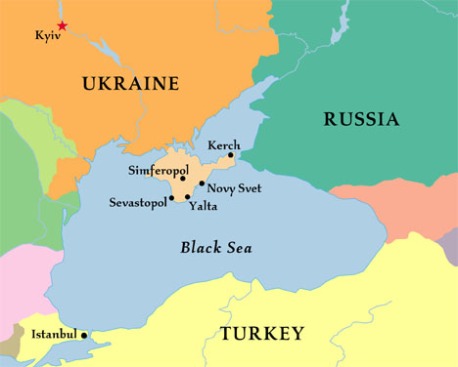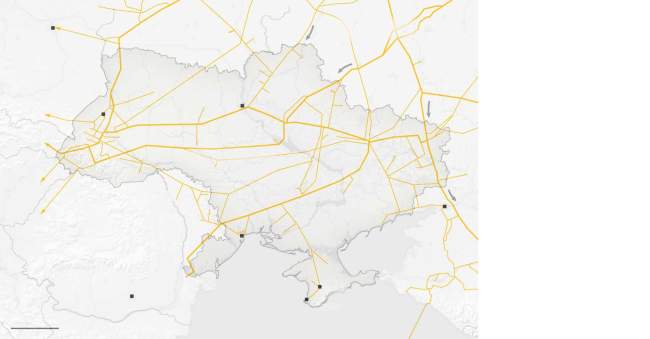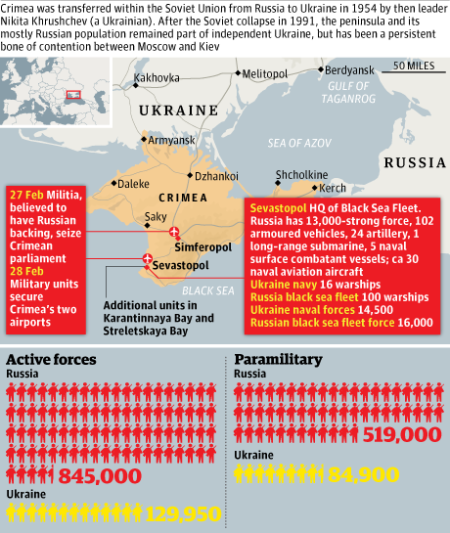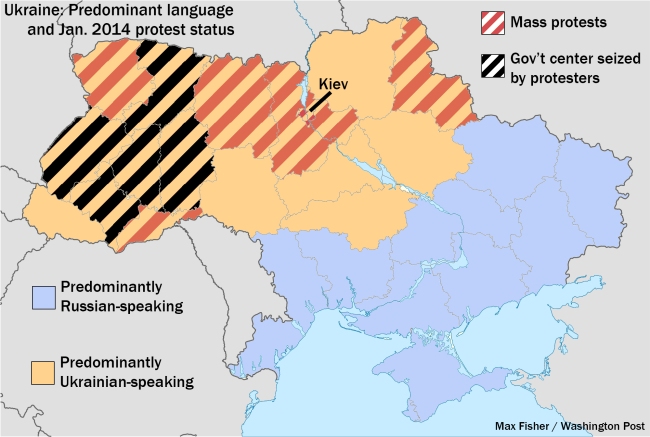From In Loco Politico
What started off as anti-government protests have escalated into a foreign occupation. Earlier last week, unidentified gunmen took over various government buildings in the southern part of Ukraine known as Crimea. Once the gunmen established control of these buildings, they quickly raised the Russian flag.




This comes after a majority of members of the president's party either defected or fled from Parliament in mid-February, giving the opposition enough political power to pass laws that removed police forces from Kiev, restored the 2004 constitution, and deposed President Yanukovych from office. A new intern President, Oleksandr Turchynov, was also appointed and Parliament said elections would take place in early May.
A warrant for Yanukovych's arrest was issued and he promptly went missing, though many in the media speculated he had fled to the Ukrainian-Russian border town of Kharkiv. From there, he fled to Russia, where in a February 28 press conference, he denounced the revolution as illegal and illegitimate. He also called on Russian intervention to help restore peace and order in Ukraine, saying "I think Russia should, and is obliged, to act, and knowing the character of Vladimir Putin, I am surprised he is so restrained and keeping silent."
Putin apparently heard Yanukovych's plea for help, as approximately 16,000 Russian troops were mobilized around the Russian-Ukrainian border. Russia's Defense Minister defended this action, stating that it was simply a military exercise meant to test Russian troops' "readiness for action in crisis situations that threaten the nation’s military security.” Putin has claimed that many of the activists in Ukraine and Crimea are actually "neo-Nazis" and that Russia needs to "protect the welfare of the local population".
The situation only worsened from there as the 16,000 aforementioned troops flooded the Crimean peninsula at the end of February and took over complete control without a singled shot fired. While both the intern government and Russia have stated that they do not want to escalate this conflict into a full-on war, neither side has yet to show compromise.
Why this Matters
Russia being a provider of 30% of Europe's natural gas, coupled with the fact that many of the pipelines connecting Russia and Europe pass through the Ukraine, this revolution and subsequent occupation by Russian forces could have lasting impacts in Europe.
Russia's actions have made the situation between the West (especially the United States) and Russia more tense than previously. Some speculate we are entering a second Cold War due to Russia's actions. The United States has already cancelled trade talks and military-to-military engagements between the two countries and has also threatened to boycott the G8 Summit held in Sochi Russia as well as economic sanctions against Russia. Both France and the UK have already pulled out of the G8 preparatory talks. The economic sanctions threatened by the United States seem unlikely, considering that Russia (and its ally, China) are both permanent members of the UN security council and any proposed economic sanctions would be vetoed.
Background Information on Crimea
Many have compared the Russian intervention in Crimea to both US led-intervention in Iraq and Afghanistan. Much like the United States in Iraq and Afghanistan, Russia has both economic and strategical interests in Ukraine, especially in the Crimean peninsula. The Crimean peninsula is home to Russia's Black Sea naval fleet so it is obviously important to Russia. Russia has also been weary of NATO and its positioning of anti-missile shield in countries neighboring Russia, Ukraine not included. Because of this, some see Russia's actions as a justified protection of economic interests as well as curtailing expanding NATO presence in Eastern Europe.
Crimea is somewhat of a tough spot for either Ukraine or Russia. It was given to the then Ukrainian Soviet Socialist Republic by Nikita Khrushchev, leader of the Soviet Union, in 1954. It has some autonomy but is still part of Ukraine. 58% of the population of 2 million are considered ethnic Russian as opposed to the 24% labeled as ethnic Ukrainians. Most of the pro-government protests have taken taken place in Crimea and a majority of Crimeans support closer ties to Russia, if not full blown annexation.



No comments :
Post a Comment